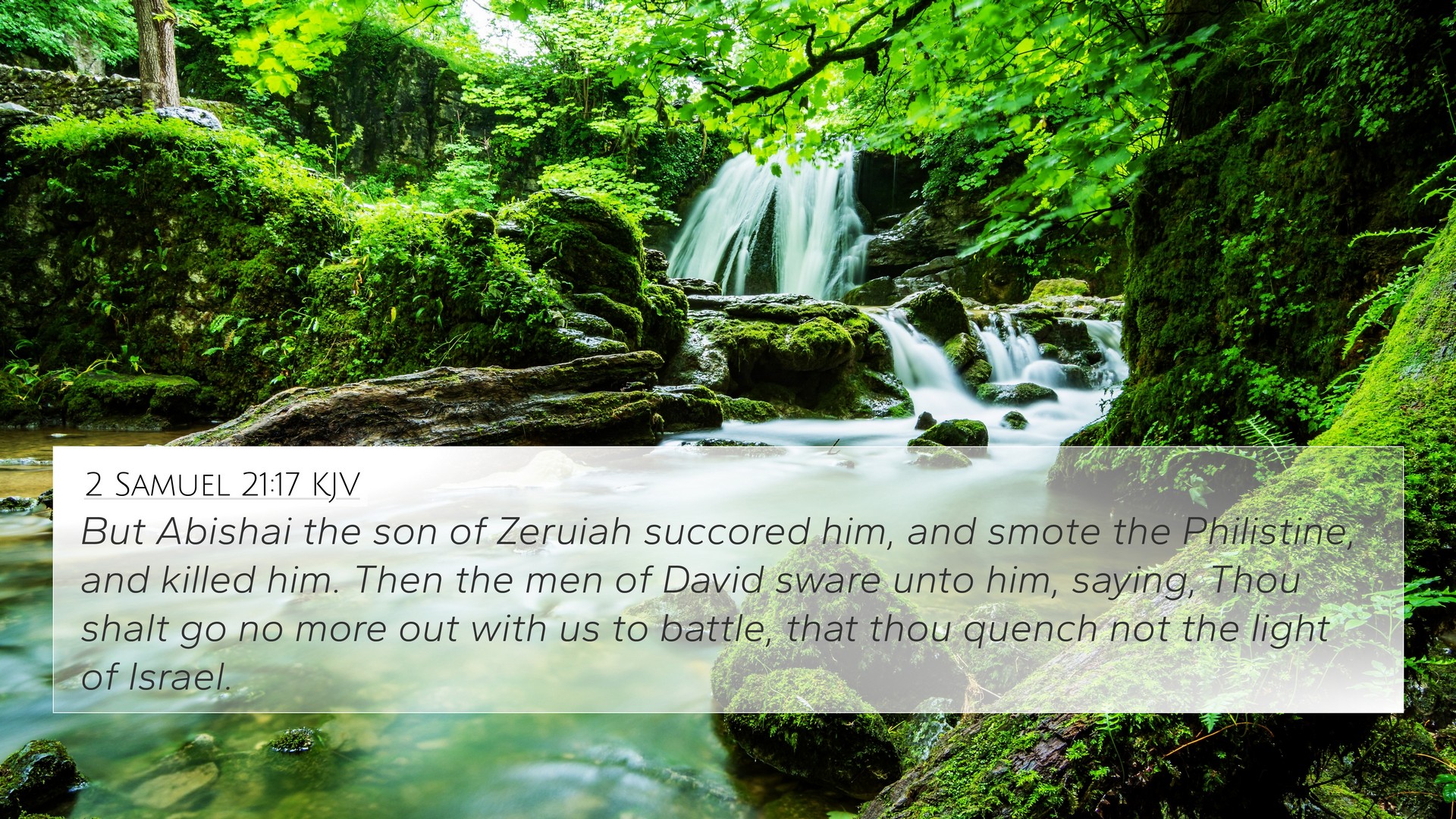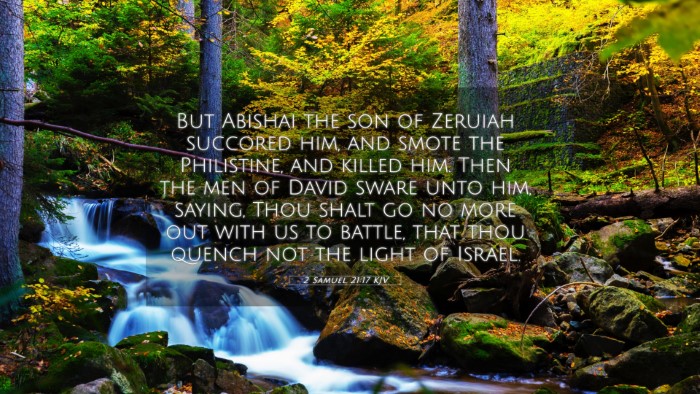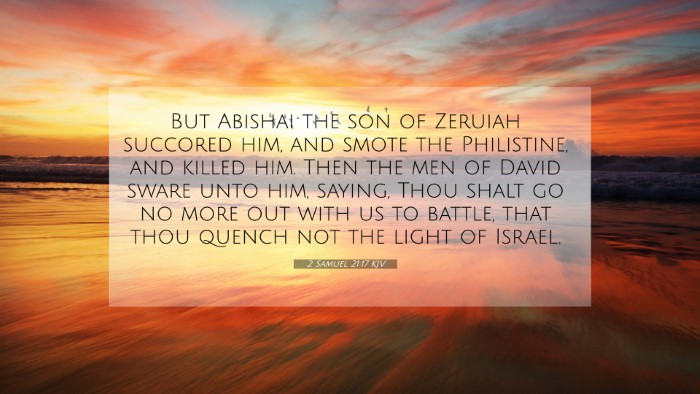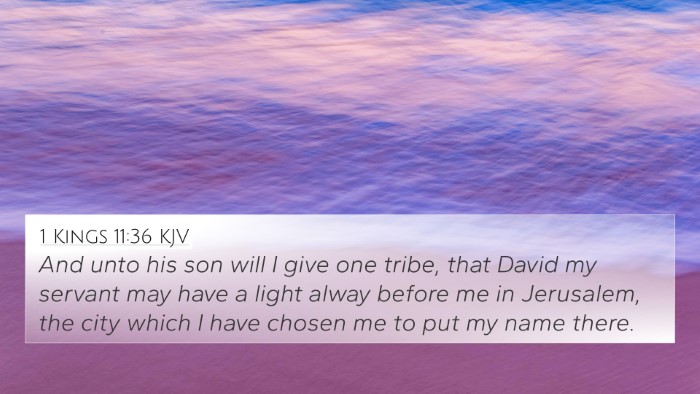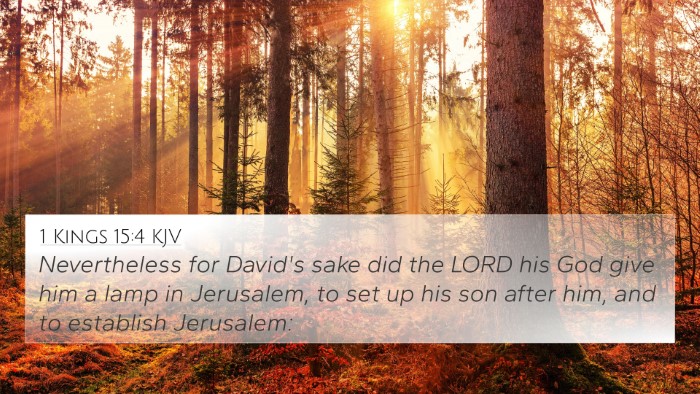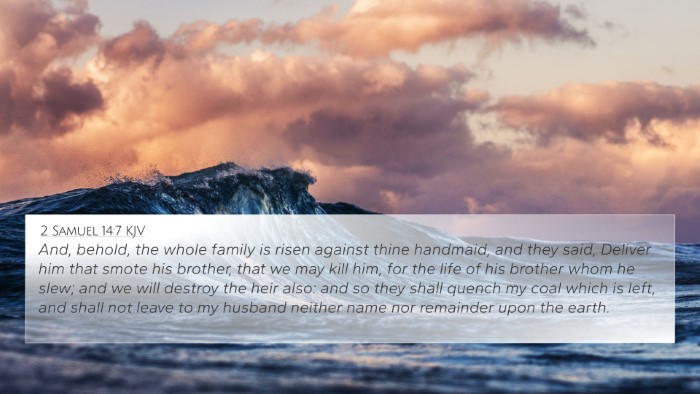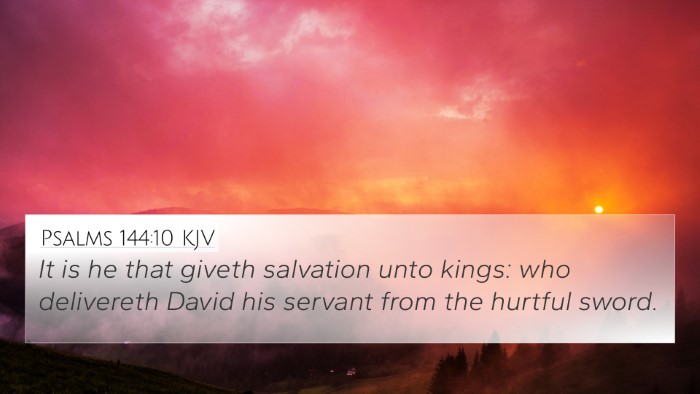Understanding 2 Samuel 21:17
Verse: "But Abishai the son of Zeruiah came to the rescue of David and struck the Philistine and killed him. Then the men of David swore to him, saying, 'You shall go no more out with us to battle, lest you quench the lamp of Israel.'" (2 Samuel 21:17)
This verse captures a significant moment during a battle with the Philistines, emphasizing both the danger David faced and the loyalty of his men. The dynamics of leadership, valor, and the value of life in the context of war are prevalent themes here.
Commentary Insights
The insights from public domain commentaries provide a deeper understanding of this verse. Below are interpretations drawn from Matthew Henry, Albert Barnes, and Adam Clarke.
Matthew Henry's Commentary
Rescue of David: Henry notes that Abishai's intervention represents the vital role of loyal followers in the life of a leader. It suggests that in times of peril, true friends rise to protect their leaders. This act of heroism not only saves David but underscores the broader theme of camaraderie.
Symbolism of the 'Lamp of Israel': The phrase “quench the lamp of Israel” signifies David's essential role as a guiding light for his people. Henry emphasizes that David’s life is intertwined with the nation’s fate and that his death would mean the loss of guidance for Israel.
Albert Barnes' Commentary
David's Declining Strength: Barnes elaborates on the symbolism of David’s need for protection, highlighting that his earlier strength is waning. The implication is that as leaders grow older, their reliance on others becomes more pronounced. His statement about David's future involvement in battle illustrates the need for wisdom in leadership, acknowledging limitations.
Honoring David: The men’s vow to spare David the risks of battle demonstrates their respect and desire to preserve their leader. They understood that David's safety was paramount for the continuity and stability of their nation.
Adam Clarke's Commentary
Context of Battle: Clarke provides a broader historical context, noting repeated encounters with the Philistines. He describes the ongoing struggle between Israel and this sworn enemy, suggesting that David’s struggles epitomize Israel's turbulent history during that time.
Abishai's Role: Clarke points at Abishai’s actions not merely as bravery but as a commitment to God’s covenant with Israel. His intervention is a reminder of the providential care that God provided through loyal comrades.
Cross-References and Thematic Connections
This verse connects with several other scriptures, offering profound insights into leadership, loyalty, and divine protection:
- 1 Samuel 16:13; The anointing of David represents the beginning of God's covenant with him.
- 2 Samuel 5:20; David’s victory over the Philistines showcases his leadership and reliance on God.
- 1 Chronicles 11:20-21; Reiterates Abishai's depth of loyalty as a warrior and leader.
- Psalm 132:17; Illustrates God’s promise to establish David's throne forever.
- 2 Samuel 23:18-19; Highlights the bravery of David’s warriors and their commitment to him.
- 1 Samuel 30:6; Reflects the loyalty of David's men during times of crisis.
- Matthew 5:14; Jesus references being the light of the world, mirroring the lamp metaphor associated with David.
- Isaiah 43:4; God cherishes His people, similar to the way David is valued by his men.
- Philippians 1:27; Encourages unity and striving together for the faith, reminiscent of David’s men rallying to protect him.
- Romans 12:10; Emphasizes brotherly love and honor among believers, as shown by David's men.
The Importance of Inter-Biblical Dialogue
This verse not only exemplifies the dynamics of ancient leadership but also presents numerous opportunities for Bible verse cross-references and linking Bible scriptures. Understanding these connections can deepen one’s study of God's covenant and the nature of leadership throughout the Bible.
In modern study, tools for Bible cross-referencing such as concordances and cross-reference guides provide invaluable resources for believers seeking to uncover thematic Bible verse connections. How to use Bible cross-references effectively can enrich one's understanding, leading to a fulfilling Bible study experience.
Conclusion
2 Samuel 21:17 highlights the interplay of loyalty, divine calling, and leadership within the context of warfare and national identity. By examining the insights from public domain commentaries and engaging with the related scriptures, one can appreciate the complexity and richness of the biblical text.
